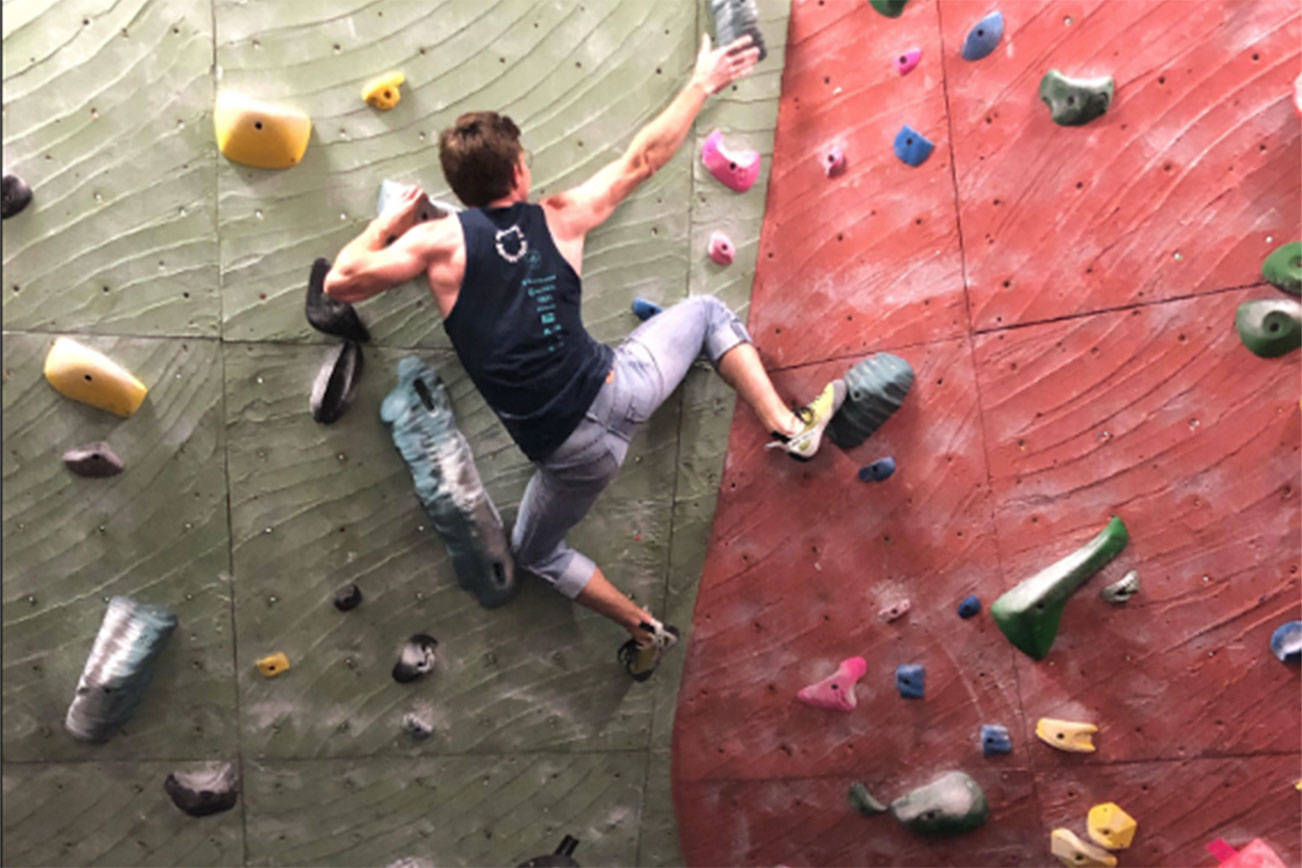Following Gov. Jay Inslee’s latest statewide approach to COVID-19 recovery, Insight Climbing & Movement on Bainbridge Island will be able to reopen with restrictions starting Jan. 11 since indoor climbing facilities are now considered “low-risk sports.”
Michele Lang, owner of the business, had said last week that she would likely have to close it down if Inslee didn’t make this move.
“Recognized as a low-risk sport, we’re pleased that indoor climbing will be allowed to reopen next week under Phase 1 – following our industry-leading safety protocols and guidelines,” Lang said. “On behalf of my 10 employees here on Bainbridge Island and in the community, we thank Governor Inslee for his actions and data-driven approach that recognized the low-risks and safety of indoor climbing, which is inherently a socially-distanced activity. With the New Year upon us, the Governor and his staff also clearly acknowledged the importance of activities including indoor climbing for mental and physical well-being during this time of crisis. The indoor climbing industry looks forward to working closely with the Governor and his staff on the path to recovery.”
Lang initially pushed Inslee to reopen indoor climbing facilities citing, “It will take years for indoor climbing to come back.” She is the spokeswoman for the Indoor Climbing Coalition, which recently sent a letter to Inslee requesting that he allow these facilities to reopen, citing state Department of Health data that shows there have been no known COVID cases from such facilities.
“While most businesses are now allowed to stay open in Washington state, indoor climbing facilities have not been allowed to operate even at lower capacities,” Lang said last week. “These are all small businesses, and we cannot pivot to take our services outdoors. If our members can’t reopen for the new year, which is our busiest season, this industry will fail, jobs will be permanently lost …”
A coalition news release says indoor climbing is a sport with tall walls creating extreme social distancing (up to 50 feet), the use of chalk on hands that deactivates 99 percent of COVID contact, and it is a non-cardio activity that can be done 100 percent masked. Climbing gyms are also comprised of local memberships and use reservations and check-in and -out procedures that allow for up-to-the-minute contact tracing.
“We care deeply about the health of our communities and what we are asking for does not minimize the seriousness of the pandemic, nor does it put our communities at a greater risk,” Lang said previously. “We understand why our industry was initially closed, but if we cannot reopen for the new year, indoor climbing in Washington state will soon collapse.”
New York Gov. Andrew Cuomo recently reopened gyms because they “are now one of the lowest known drivers of (COVID) clusters” accounting for 0.06 percent of outbreaks.
The coalition said indoor climbing is a $30 million industry made up of small businesses that support 1,000 employees and approximately 200,000 Washington state customers but has been operating at a near-complete loss for eight months.
“There are only a few industries in the state which have been fully shut down, and with no meaningful aid from the state being provided and our livelihoods, investments and savings disappearing despite the evidence that we can operate safely, we are running out of time,” said Lang, who owns another facility in Bremerton.
The coalition sent an Indoor Recreation Climbing Guide Proposal signed by the owners of 23 climbing facilities from around the state to Inslee.



